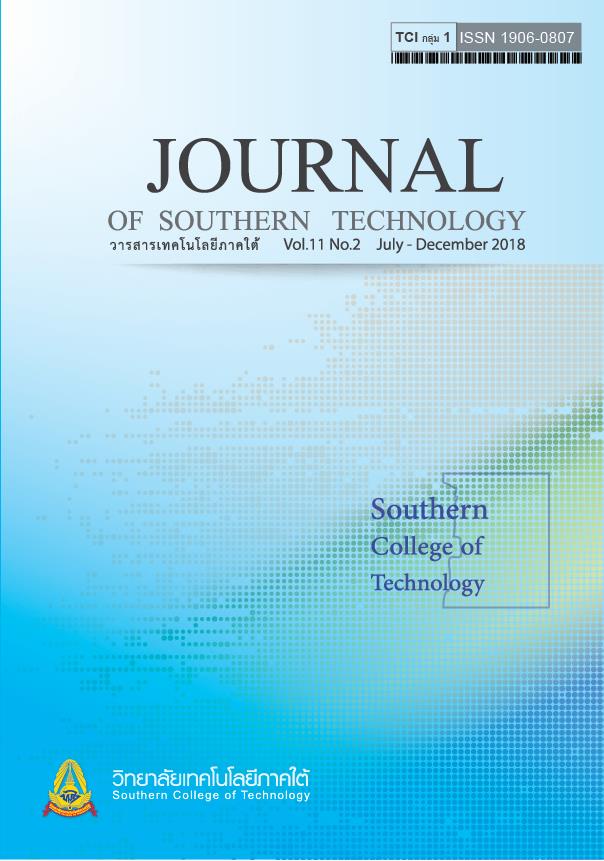Constructing Learning Activities to Develop Southern University Students’ Morals and Ethics Using Constructionism-Based Instruction
Main Article Content
Abstract
The aims of this study were to (1) investigate the effectiveness of learning activities for developing southern university students’ morals and ethics in terms of integrity based on the 80/80 criteria (2) compare southern university students’ pre-and post-teaching morals and ethics in terms of integrity, and (3) explore southern university students’ attitudes towards constructionism-based learning activities for developing their morals and ethics in aspect of integrity. One hundred undergraduate freshmen from Chalerm Kanchana College, Nakhon Si Thammarat (Academic year 1/2016), were selected using multi-stage sampling from 22 institutions classified by province, and using simple random sampling. The statistical analysis consisted of frequency, percentage, mean, standard deviation, and dependent sample t-test. The results showed that the effectiveness of learning activities for morals and ethics development in aspect of integrity was 80.20/88.30 meaning that the learning activities met the 80/80 criteria. When comparing the students’ achievements of pre-and post-teaching morals and ethics in terms of integrity, it was found that their post-teaching achievement was higher than the pre-teaching one with a statistical significance at the .05 level. In addition, the students’ overall attitudes towards the learning activities for morals and ethics development in aspect of integrity were at a high level (=4.17).
Article Details
-
Authors must agree to the journal publication rules and allow the editors to edit the manuscripts for publication.
-
Author’s right belongs to the author but Journal of Southern Technology holds the right of first publication and thus allow readers to use the article for the purpose of education but not commercial.
References
Khaemmanee, T. (2004). The Science of Teaching. Bangkok: Chulalongkorn University Press.[in Thai]
. (2007). The Science of Teaching: A Body of Knowledge for Efficient Learning Process Management. (5th ed). Bangkok: Chulalongkorn University Press. [in Thai]
Royal Thai Government Gazette. (2003). Thai Royal Institute Dictionary (1999). Bangkok: Nanmeebooks Publications Co., Ltd. [in Thai]
Sailabath, J., Thongsorn, P., & Suratanareungchai, V. (2012). An integrated curriculum development for Grade 5 students by constructionism theory: a case study of Ban Khaohin school. Journal of Educational Administration Burapha University, 7(1), 79-90. [in Thai]
Sutthipaet, P. (2003). Factors Affecting Students’ Learning according to Constructionism Theory (Research Report). King Mongkut's University of Technology Thonburi. [in Thai]
Theerawit, P., Srisanyong, S., & Teeravanittrakul, S. (2017). The construction of learning activity developed morals and ethic for honesty of university students in the eastern region of Thailand by employing teaching and learning strategies based on constructionism theory. Journal of Southern Technology, 10(2), 145-152. [in Thai]
Wonglaykha, F. (2012). Sustainable Thai People Development. Retrieved 7 October 2015, from https://www.dailynews.co.th/ education/11056 [in Thai]

